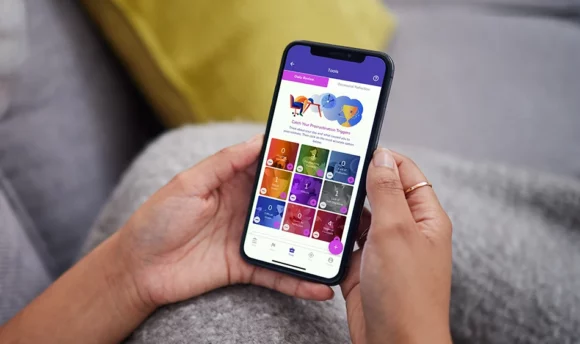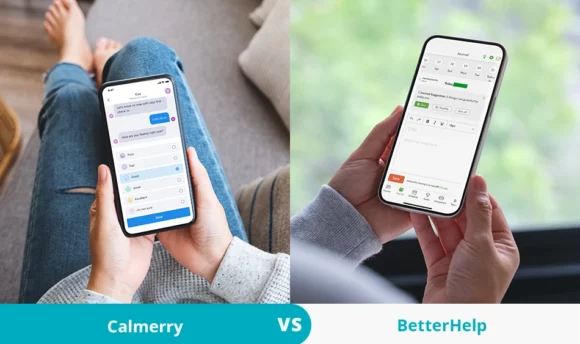What Is Anonymous Therapy? Exploring the Concept
Anonymous therapy is an effective therapy form for people who prefer to remain incognito. We dive into what it is and compare online and in-person therapy.

Not everybody is comfortable seeking traditional, in-person therapy, and there is nothing wrong with that. Some people value their privacy, while others carry a stigma associated with seeking psychological help and want to remain anonymous.
Whatever the reasons, you should be granted a safe space to discuss sensitive issues without the added pressure to reveal your identity.
Over the past few years, anonymous therapy started trending as an ideal solution to receiving psychological help without visiting a therapist’s office and disclosing your identity.
So, what is anonymous therapy, and is this the therapy form you were looking for?
What Is Anonymous Therapy?
Anonymous therapy is a type of therapy or counseling conducted without the therapist knowing the client’s identity.
Anonymity is ensured in several ways, such as through the use of pseudonyms or the use of online apps that allow clients to communicate with experienced licensed therapists anonymously.
You can choose the format of communication, too. Some people prefer chat rooms, while others love voice or video calling. Depending on the desired level of anonymity, you always have the right to choose the most suitable therapy format.
The purpose of anonymous therapy is to provide a safe and confidential space for clients to disclose personal problems without fear of judgment and receive emotional support.
In general, therapy can help to eliminate or control troubling symptoms for you to function and feel better.
There are various reasons why people prefer to remain confidential and seek anonymity.
Some people may feel more comfortable discussing sensitive issues (like suicidal thoughts or eating disorders) in an anonymous setting where their identity is unknown to the therapist. It can provide a sense of security and privacy that encourages the patient to speak more openly and honestly.
Other people may still carry some stigma associated with seeking therapy. These people might find anonymous therapy acceptable to discuss their issues anonymously because nobody will know they asked for help.
Of course, anonymous therapy is also a great alternative to traditional therapy for people with disabilities or living in rural areas. Online in-app chat rooms or over-phone sessions are convenient and accessible to everyone.
Is Anonymous Therapy Truly Anonymous?
Unfortunately, not all online therapy provides complete anonymity.
For instance, if a client is using an online platform to communicate with a therapist, some information may be shared with the platform (such as IP addresses or payment information) and could be used to identify the client.
Additionally, even if the therapist does not know the client’s real identity, there may be other people – such as platform employees or administrators – who have access to this information.
Lastly, most licensed therapists are obliged to report emergency cases to the authorities. For that, some platforms ask you to provide a residential address.
Therefore, you should always research the platform and read its privacy rules. If you have any concerns, discuss them with a therapist during your first session.
Where Can I Talk to an Anonymous Therapist Online?
While many platforms provide online therapy (like 7 Cups or Talkspace), most websites require you to sign in or provide other personal details. If you want absolute anonymity, you might benefit from using a therapy-simulating app.
It is a perfect app for people seeking short-term emotional support and lasting changes (e.g., when suffering from post-traumatic stress disorder, depression, anxiety, etc.).
It involves essential emotional well-being features like journaling, mindfulness practices, weekly assessments, and a quick-relief segment. Research shows that mindfulness and journaling can reduce stress, decrease emotional reactivity, and help you cope with depression.
Using such an app grants you anonymity and offers similar support as if you were speaking with a therapist.
Online Therapy vs. In-Person Therapy
Both in-person and online therapy has unique benefits and limitations. It is a good idea to consider your needs and preferences when deciding which type of therapy is right for you.
Anonymity
Confidential online therapy provides absolute anonymity. That is, your therapist will never know your identity. You can always choose the amount of information you want to disclose (like showing your face or not, telling where you live and work or not).
However, you will not receive the same level of anonymity in face-to-face therapy. Here, your therapist usually knows your name, surname, and residential address and sees your face.
Confidentiality
Both anonymous and in-person therapies ensure confidentiality. In traditional therapy, even if your therapist knows who you are, they cannot say anything to anyone about the things you discussed.
Keep in mind that in case of an emergency (risk to your life or others), both online and in-person therapists must inform the authorities.
However, in the case of absolute anonymous therapy, the therapist never knows who you are and cannot inform anyone about your situation.
Building a relationship
It may be more difficult for an online therapist to build a close therapeutic relationship with the client without knowing their real identity.
As a client, you may not have the same level of support and accountability that you would have in a regular therapy session. If a personal connection is something that matters to you, consider visiting a therapist.
Non-verbal language
In online therapy, it may be more challenging for the therapist to assess the client’s nonverbal cues and body language, which can be important in the therapeutic process.
In-person therapy requires you to physically sit in front of the therapist. This way, the specialist can notice your unintentional body movements and address them to help you heal faster.
Convenience
Online therapy can be conducted from anywhere: remote areas, an office, your home, or even during a walk in the forest.
Regular therapy usually requires you to be physically present in the same location as the therapist.
Medication
If your health condition is poor and you need medication or even hospitalization, an anonymous therapist will not be able to provide you with these services. In some extreme cases, a lack of professional medical assistance can be dangerous for your health.
An in-person therapist can give you a prescription for medication or require your hospitalization.
Individualized care
During a therapy session, a certified therapist individually works with your history, personality, and behavioral patterns. Such a long-term approach can help you recover from severe mental health issues and illnesses.
During online therapy, it is often not possible for therapists to provide the same level of individualized care and support due to a lack of trust and time.
Therefore, anonymous counseling may not always be suitable for addressing more complex or severe issues.
FAQs
Anonymous counseling can be effective for addressing psychological concerns, especially in difficult periods of life.
However, it is important to note that anonymous counseling is typically not a long-term solution for healing mental illness and is best used as a supplement to other forms of treatment.
Some of the online therapy resources offer free emotional support. Many helplines and online chat services are funded by government or charitable organizations (here, you talk not to therapists but to trained volunteer listeners).
Yet, some resources (like apps) may not offer free emotional support, especially if you want continuous consultations or personal growth.
A Word From a Psychologist
Reaching out for help is always the best thing anyone can do when things are difficult.
For people who want to look for help anonymously, confidential online therapy can become a great resource. It can provide a safe and private space to discuss concerns with a licensed therapist or a trained volunteer and receive support.
Yet, a few phone calls or chat rooms cannot fully replace face-to-face therapy or other long-term therapeutic solutions. A short-term consultation with a specialist can only provide instant relief but not permanently fix the issue.
That being said, choose the type of professional help that best fits your situation. If you want short-term relief and to remain anonymous, online counseling is perfect.
If you want to better understand yourself and your behavioral patterns, or deal with more complex mental issues, choose in-person therapy or other therapy-simulating mental health tools. A long-term approach provides more lasting value for your emotional well-being.
Conclusion
Anonymous therapy is an excellent resource for people seeking professional emotional support who are not ready to speak with licensed therapists in person or do not have access to other mental health resources.
Anonymous therapy allows you to seek professional help without disclosing your identity or providing personal details. Anonymity is a critical criterion for people who want to seek help and avoid feeling shame and judgment.
While anonymous counseling has a few limitations to face-to-face therapy, it is still considered an effective tool for receiving emotional support.
There are many solutions to choose from – peer support hotlines with trained volunteer listeners, anonymous chat rooms, online therapy platforms, and therapy-simulating mental health apps.
Try out a few forms of therapy and see which suits your needs the best.

















































 Select your language:
Select your language: 








